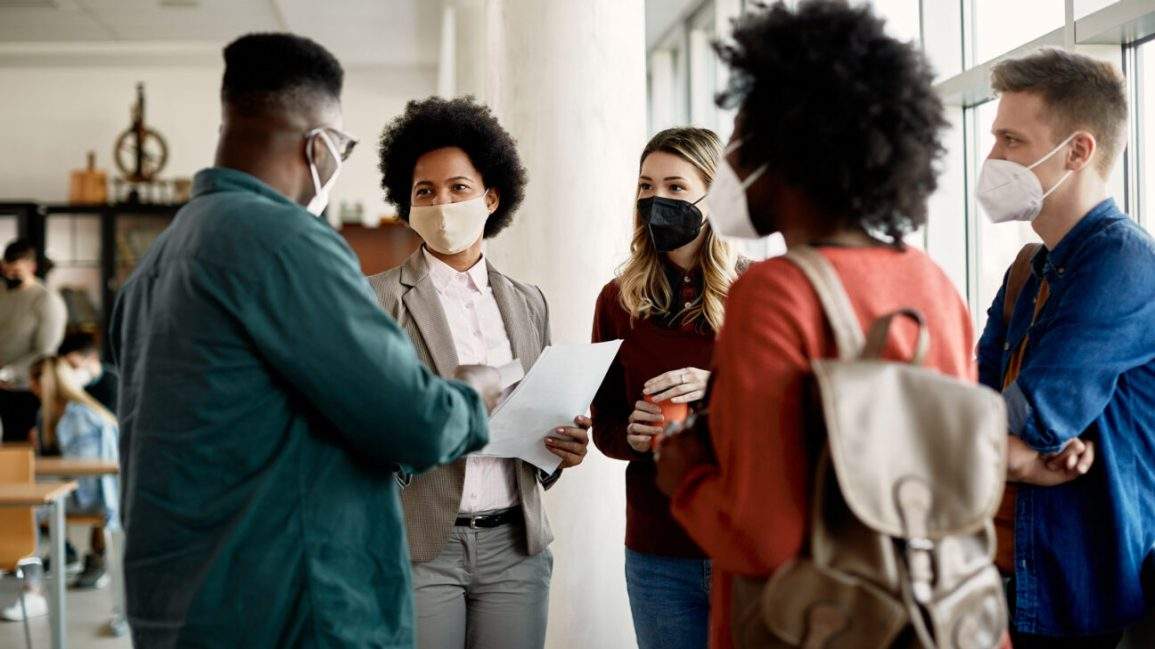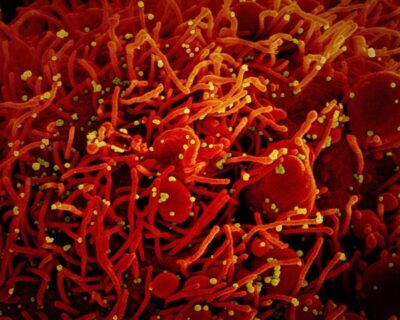
During the pandemic, college students are increasingly reporting high levels of anxiety and burnout.
- During the ongoing COVID-19 pandemic, a recent study discovered that college students are increasingly show indicators of worry and exhaustion.
- Furthermore, survey participants were more likely to indicate a higher risk
- of alcohol and cigarette use, as well as an increase in bad eating behaviors.
- According to experts, students may suffer additional stresses as they return to on-campus learning.
According to a new poll performed by The Ohio State University’s Office of the Chief Wellness Officer,
college students are reporting growing rates of anxiety, despair, burnout, and “unhealthy coping mechanisms,” such as vaping and cigarette use.
This is the second time the survey has been done in less than a year, and students’
mental health has dramatically worsened, according to Bernadette Melnyk, Ph.D.,
chief wellness officer and dean of the College of Nursing at Ohio State, who led the survey.
According to analysts, student fatigue increased dramatically from August 2020 to April 2021.
“Student burnout was at 40% when we first conducted the poll in August 2020. It was 71 percent in April 2021,” Melnyk stated in a statement. “The study revealed students’ ongoing mental health difficulties,
and we must equip them with the resilience, cognitive-behavioral skills,
and coping skills that we know protect against mental health disorders.”
The percentage of pupils who tested positive for anxiety increased from 39 to 43 percent throughout this time period. The number of people who tested positive for depression increased from 24% to 28%.
Additionally, they discovered that more students reported coping with stress by drinking, smoking, or eating unhealthy foods.
More healthful means of dealing with stress, such as greater physical activity, fell from 35% to 28%.
Change is difficult
“Change is difficult, even positive change,” says Naomi Torres-Mackie, Ph.D.,
a psychologist at Lenox Hill Hospital in New York and the chief of research at The Mental Health Coalition.
She told Healthline that as limitations in schools, work, and life loosen,
it can lead to a slew of negative emotions like tension, melancholy, and worry.
“Adjusting to the reopening also requires a lot of energy, which is exhausting,” Torres-Mackie said. “Experiencing a huge life change like going to college is stressful under any circumstances,
but experiencing it while the world regains its footing is exceptionally difficult.”
This is why, she said, it’s so vital for college students to look
after their physical, emotional, and mental health this year.
Returning students should use this checklist to help them prosper.
The poll results will be used by Ohio State University and the Ohio State Wexner Medical Center to enhance student services and incorporate them into both the curriculum and campus life, according to the university.
Melnyk is co-chairing a new mental health commission with Melissa Shivers, Ph.D., senior vice president of Ohio State’s Office of Student Life, to promote and protect students’ mental health and well-being as they return to campus.
This involves the introduction of a new mental health checklist called “Five to Thrive” that all college students can utilize as they prepare for the fall semester:
- Establish health habits that work for you: Stress reduction, physical activity, and good nutrition should be scheduled in the same way that classes and homework time are.
- Practice deep breathing, mindfulness, gratitude, and replacing negative thoughts with positive ones to increase resiliency and coping abilities.
- Locate mental health services in your area: Find/connect with counseling services, a primary care practitioner, and a pharmacy through your school’s resources.
- Get involved in campus life, meet new people, and connect with positive individuals in your life to grow and sustain your support systems.
- Don’t put off seeking treatment: If your symptoms or emotions are interfering with your ability to concentrate or function, seek professional help right away.
The findings of this study made sense, according to Torres-Mackie, because “we know that anxiety flourishes in anticipation.”
‘Anxiety levels are likely to be higher as adolescents prepare to return to school rather than actually returning to school,’ she noted.
According to Torres-Mackie, kids’ mental states will shift as a result of the massive changes brought on by the pandemic
She added, “Also, trauma is processed after the fact.” “It’s understandable that [students’] mood and well-being are suffering now.”
Vaccination may help to alleviate anxiety.
Dr. Barbara Keber, chair of family medicine at Glen Cove Hospital in Long Island, New York, said, “We have excellent evidence that being vaccinated for COVID-19 with any of the three currently available vaccines here in the US — Pfizer, Moderna, or J&J — reduces the likelihood of getting very sick from COVID.”
She went on to say that while there are some “breakthrough” cases of COVID among vaccinated persons, they do not get as unwell or end up in the hospital if they do contract the virus.
“Having this knowledge should assist folks who are worried about getting sick with COVID feel less worried,” she said. “Getting your ‘shot’ provides you a wonderful chance to stay healthy and worry less throughout the school year.”
Keber recognizes that some students are unable or unwilling to accept vaccination. In these circumstances, she believes that remote learning choices may be the best solution.
“Blocking them should be an option for every university as it seeks to protect all students, teachers, and staff,” she said. “Those who are unable to be vaccinated due to medical reasons should have the option of attending in person or remotely.
What can parents do to help?
Communication, according to Torres-Mackie, is crucial in dealing with student apprehension over the upcoming school year.
“Parents can help college students cope with the challenges of the new academic year by having dialogues with their children about their well-being during this time,” she said.
Torres-Mackie explained that children anticipate their parents to be less comfortable talking about mental health than they are, so “an invitation from a parent is important.”
Even if your child declines the offer, she says, it sends the message that you care about their well-being and are willing to help if they need it.
She continued, “Just knowing that your parent is available for your emotional needs can mean a lot.”





